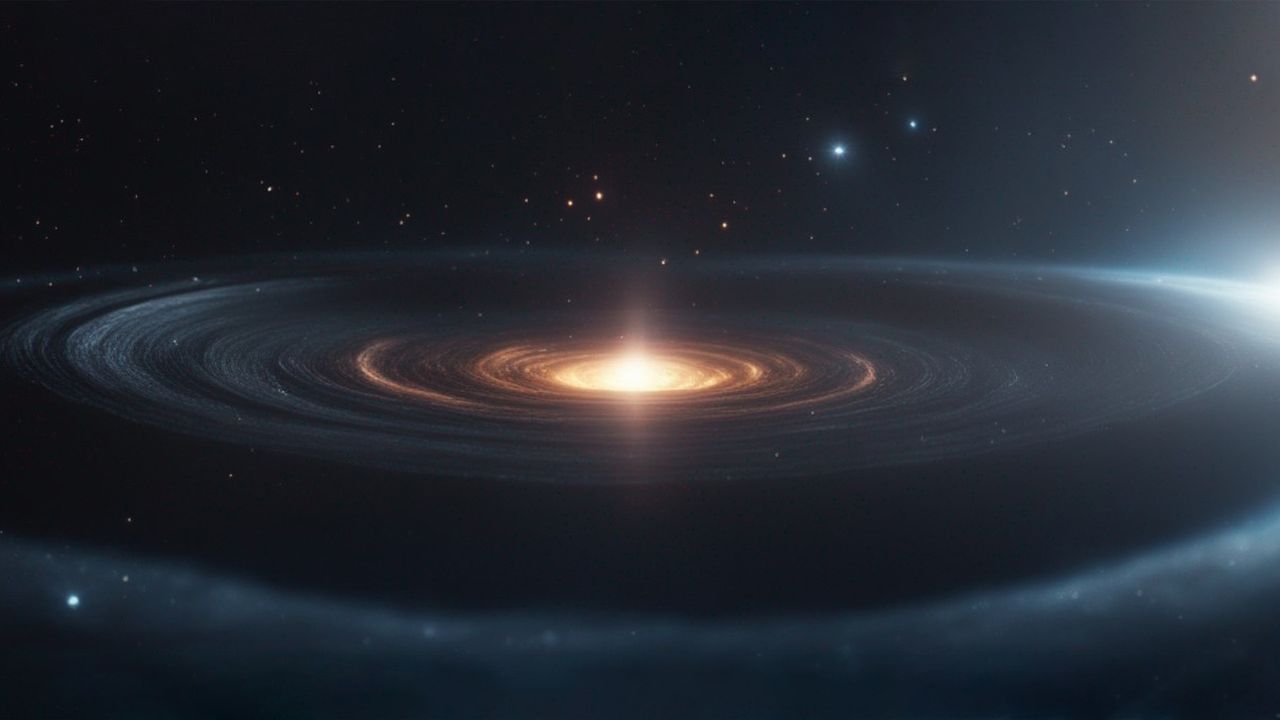UPDATE: Scientists are on the brink of a groundbreaking discovery that could revolutionize our understanding of the universe. New reports confirm that the elusive ripples from the Big Bang, known as primordial gravitational waves, may soon be detectable with advanced technology.
In the first moments of the Big Bang, the cosmos experienced intense quakes that sent ripples through the fabric of space-time. These gravitational waves, while incredibly weak today, hold the key to unlocking the mysteries of the universe’s origins. If detected, they could validate theories about cosmic inflation, a phenomenon that transpired in less than a second after the universe began.
The quest to find these primordial waves is spearheaded by the Laser Interferometer Space Antenna (LISA), set to launch in the mid-2030s. This ambitious project involves three satellites positioned between 600,000 and 3 million miles apart, utilizing precise lasers to monitor minute changes in distance caused by passing gravitational waves.
LISA aims to uncover a wealth of cosmic phenomena, including the waves produced by supermassive black holes and supernovas, but its primary mission is to detect the primordial gravitational waves from the Big Bang. Despite the excitement, researchers acknowledge the challenges ahead, as the strength of these waves remains uncertain.
The significance of this research cannot be overstated. Albert Einstein first predicted gravitational waves in 1916, but it took nearly a century for scientists to confirm their existence with the success of LIGO in 2015. That breakthrough revealed the unmistakable signature of waves generated by merging black holes. However, the waves from inflation are expected to be much weaker and longer, making them difficult to detect on Earth.
Cosmologists believe that inflation caused rapid expansion of the universe, transforming quantum fluctuations into density variations that shaped the cosmos as we know it. Currently, the cosmic microwave background holds the only indirect evidence of this event. The statistical patterns observed in this background radiation hint at inflation, but a direct observation of the gravitational waves from this epoch is still needed.
Future space missions like the proposed Big Bang Observer (BBO) could enhance detection capabilities, but as of now, the focus remains squarely on LISA. With the potential to provide an unprecedented view into the earliest moments of cosmic history, the success of this mission could lead to transformative insights about how the universe began.
As scientists prepare for this monumental leap in understanding, the world watches closely. Will LISA succeed in detecting the faint echoes of the Big Bang? The implications of such findings could reshape our comprehension of space-time and the fundamental forces that govern the universe.
Stay tuned for updates on this developing story as researchers work tirelessly to uncover the secrets hidden within the fabric of the cosmos. The search for primordial gravitational waves is not just a quest for knowledge; it is a journey into the very heart of our existence.
